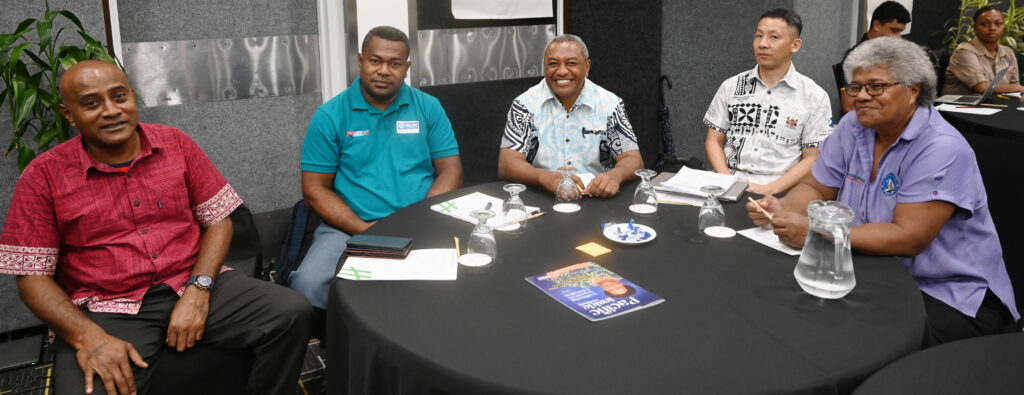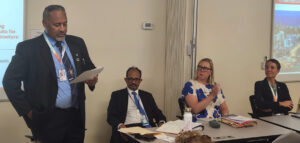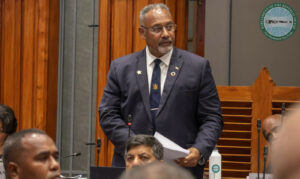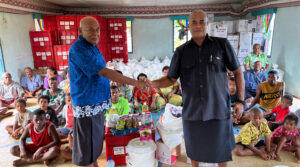
Caption: Permanent Secretary for Rural and Maritime Development and Disaster Management Mr. Isoa Talemaibua with stakeholders from Government, civil society, and faith-based organisations attending the two-day Validation Workshop for the Revised National Humanitarian Policy.
SUVA – The revised National Humanitarian Policy (NHP) will allow humanitarian action in Fiji to be principled, coordinated, and responsive to the needs of communities when they are affected by disasters and other societal disruptions, whether natural or manmade in nature.
This was highlighted by the Permanent Secretary for Rural and Maritime Development and Disaster Management Mr. Isoa Talemaibua at the opening of a two-day Validation Workshop for the revised NHP in Suva.
Mr Talemaibua said in the last six months, the National Disaster Management Office (NDMO) has endeavored to make the Humanitarian Policy up-to-date with the current trends in humanitarianism, and also forward looking to align with a future that was increasingly threatened by climate change.
“In the midst of this complex global uncertainty, what remains constant is the need for humanitarian actors, to respond effectively and quickly to those affected by calamities. I am told that the revised version of the National Humanitarian Policy, features 15 thematic areas, as opposed to the 4 that were present in the original Policy, which demonstrates how quickly humanitarian work has evolved since 2017, when the Policy was first published. These new thematic areas are a reflection of the work that has been done in Fiji, in the humanitarian space, such as international deployments, a focus on the needs of women, children, and youth, emphasis on localization and traditional knowledge, and cash-based assistance,” PS Talemaibua highlighted.
The revised NHP will also take into consideration key initiatives that will become law under the revised National Disaster Management Bill, such as the Fiji Humanitarian Cluster System and Volunteer Organizations Registry. The revised Bill had been endorsed by Cabinet last month and will be tabled in Parliament soon.
Mr Talemaibua also reminded stakeholders attending the workshop about the importance of their deliberations in the next two days.
“Over the next two days, you will have the opportunity to chart the course for humanitarian action in Fiji, for the foreseeable future. The Government of the day is looking to you to provide the expertise and context, to make the revised Policy relevant and focused on the needs of Fiji’s communities, at-risk groups, humanitarian actors, and stakeholders in general. I urge you to make the most of this opportunity, to put forth your suggestions and comments to the NDMO team, and I look forward to receiving a comprehensive, up-to-date, and forward-looking Policy.”

Caption: Representatives from Government, civil society, and faith-based organisations attending the two-day Validation Workshop for the Revised National Humanitarian Policy at the Holiday Inn in Suva.





